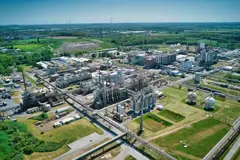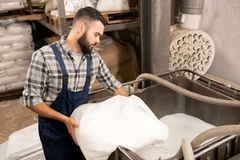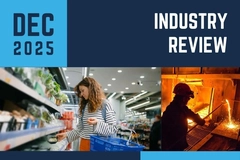“Industrial suicide:” Ineos closes plants as Europe fails to compete
Key takeaways
- Ineos shuts down two plants in Rheinberg, Germany, cutting 175 jobs due to soaring energy and carbon costs and the EU’s lack of tariff protection against cheap chemical imports from Asia.
- CEO Stephen Dossett warns of “industrial suicide,” criticizing Europe’s policies for pricing out local producers while allowing high-emission imports to flood the market.
- The closures highlight Europe’s declining chemical competitiveness, with Ineos calling for government support to preserve remaining operations and restore industrial resilience.

Ineos is shutting down its operations in Rheinberg, Germany. The closure is a result of rising energy and carbon costs, as well as the lack of European tariffs to block cheap chemical imports from Asia.
The closure involves two production units, causing the loss of 175 jobs. Ineos says the plants’ shutdown come as Europe is undergoing a “deepening crisis” across its chemical sector.
Stephen Dossett, CEO at Ineos Inovyn, says: “Europe is committing industrial suicide. While competitors in the US and China benefit from cheap energy, European producers are being priced out by our own policies and absence of tariff protection.”
“Meanwhile, high-emission imports flood our market unchecked. It’s completely unsustainable and if not immediately addressed will lead to further closures, job losses, and increased dependency on other regions for essential materials.”
Threatening Europe’s chemical security
Ineos has criticized the EU’s absence of tariff protection.
“While the US has introduced strong tariffs, effectively blocking the oversupply of commodity chemicals from South Korea, Taiwan, and China, some based on cheap Russian feedstocks, Europe opens its doors to displaced local production,” says the company.
The chemicals giant says one of the plants in question produces chemicals for epoxy resins crucial in defence, aerospace, cars, and renewable energy infrastructure. Meanwhile, the electrochemical facility produces chlorine, crucial for clean water, medicines, industrial processes, and sanitation.
The closures are part of a wider trend of Europe’s declining competitiveness, notes Ineos. Since 2019, production output in Germany has dropped by 18%, driving job losses and reduced investment. Ineos has closed plants in Grangemouth (UK), Geel (Belgium). It is closing Gladbeck (Germany), and has reportedly “mothballed” assets in Tavaux (France) and Martorell (Spain).
“We’ve reached the point where well-invested, efficient European plants are closing, while global emissions rise,” says Dossett.
“It’s not just economic madness. It’s environmental hypocrisy.”
Restoring competitiveness
Ineo says it will now focus on preserving its remaining PVC operations in Rheinberg to support around 300 skilled jobs. To achieve this, the multinational chemical conglomerate requires state support to cover significant local transitioning costs.
The business says it “deeply regrets” the decision to close Rheinberg and Allylics operations and is aware of the impact it will have on its workers and the German supply chain.
“Ineos Inovyn will work closely with partners and employees to minimize the impact,” says Dossett.
“We are doing everything we can to protect what is still viable, but we can’t do it alone. If governments want to keep strategic manufacturing in Europe, they must help manage this transition and restore competitiveness.”










